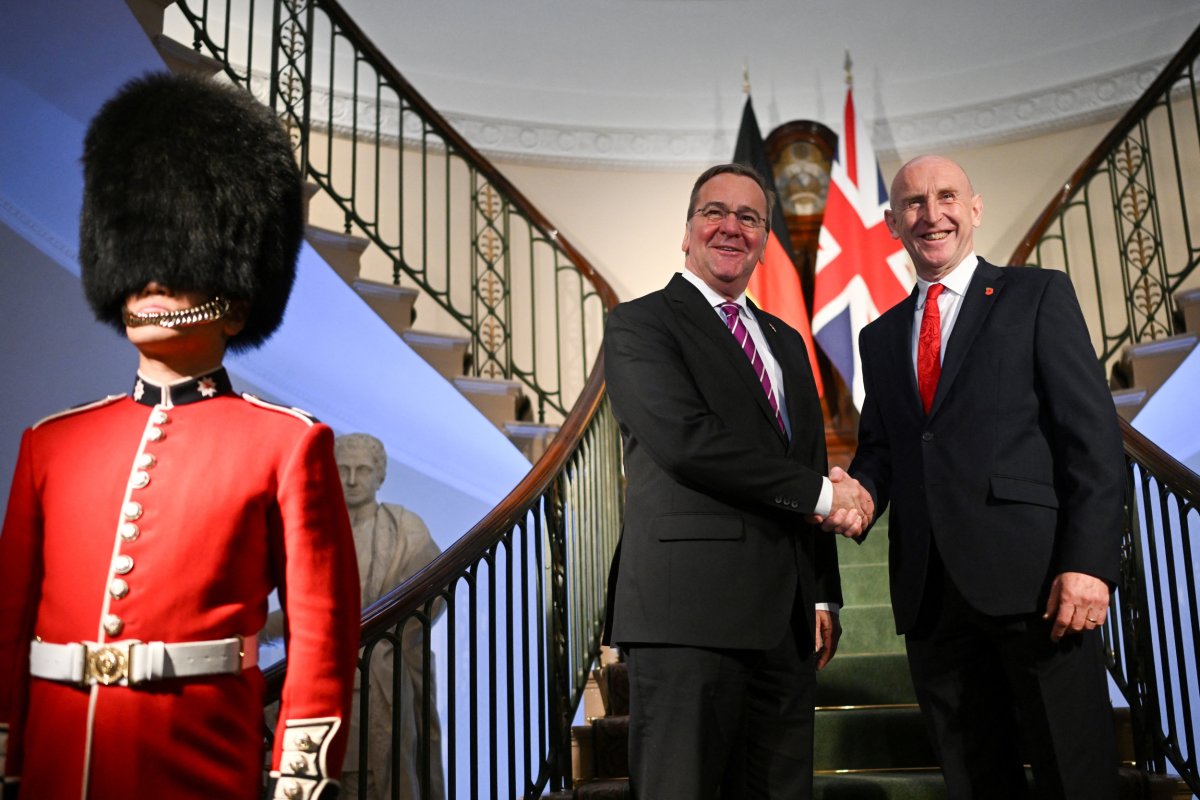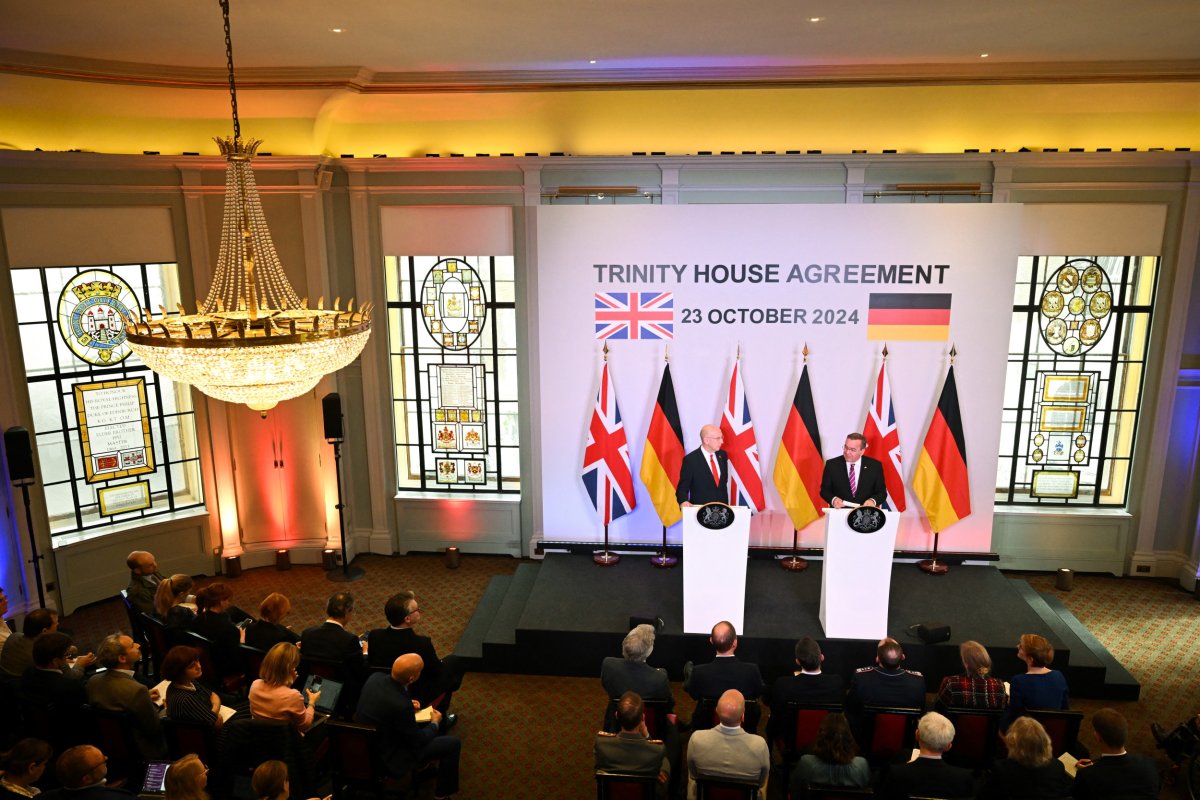German submarine-hunting planes will soon patrol the North Atlantic from a Scottish base under a defense pact signed by Great Britain and Germany.
Defense ministers met in London on Wednesday to sign what the UK is calling a "landmark defense agreement" with the pact marking a significant move in response to heightened tensions between Russia and the West since Russia launched its war against Ukraine.
The agreement is the first formal defense collaboration between the two NATO allies who were archenemies during World War II.
What Is the Agreement?
The Trinity House Agreement aims to bolster European security by enhancing cooperation in both protecting infrastructure and improving long-range strike capabilities.
"Today is a significant day for UK and German relations and in the history of our two countries," Defense Secretary John Healey said at a news conference alongside German Defense Minister Boris Pistorius.
The need for both Europe to enhance its own security and for the U.K. to play a bigger role in NATO, "is the driving force behind our NATO-first U.K. defense strategy, (and) behind our reset of U.K. relations with Europe," Healey said.

Under the agreement, German P-3C Orion aircraft will operate periodically from Scotland and will be tasked with monitoring North Atlantic waters, an area of rising Russian naval activity.
UK and Germany 'Ready to Fight and Win'
In addition, the allies will work together to secure critical underwater cables in the North Sea, vital for communication and energy supply across Europe.
Officials assert that these moves will ensure a strong and coordinated defense posture.
In the event of an attack, Pistorius insisted they want to be "ready to fight and win if required."
"We must not take security in Europe for granted," Pistorius said. "Russia is waging war against Ukraine, it is increasing its weapons production immensely and has repeatedly launched hybrid attacks on our partners in Eastern Europe."
However, the pact extends beyond submarine patrols.
The UK is stepping up our support to Ukraine, helping turn the tables on Putin’s corrupt regime.
We will stand with Ukraine for as long as it takes. https://t.co/lwASDFHo7m
The agreement also involves joint development of long-range strike weapons, expected to exceed the range of the U.K.'s current Storm Shadow missiles. German defense firm Rheinmetall will set up a factory in the U.K. to produce artillery gun barrels using British steel, creating 400 jobs.
Economic Relationships Deepened
These industrial collaborations are part of a broader economic engagement between the two nations, with German companies committing to invest over £8 billion ($10.36 million) in the U.K., further strengthening bilateral ties.
It is no coincidence that the deal comes mere weeks ahead of the U.S. election.
European nations are more concerned about potential shifts in U.S. foreign policy depending on the victory of either Vice President Kamala Harris who is committed to maintaining the U.S. commitment to NATO, or former President Donald Trump who has said he would "encourage" Russia to attack any NATO country that was not paying enough into the alliance.
Allies Are a Strength in a Dangerous World
"In a more dangerous world, allies are our strategic strength and we must do more together," Healey said.

The two nations are also expanding military cooperation in Eastern Europe.
British and German forces stationed in Estonia and Lithuania will conduct joint exercises, enhancing their readiness to deter any potential aggression on NATO's eastern flank.
This article includes reporting from The Associated Press



















:quality(85):upscale()/2024/04/24/878/n/3019466/36c5693c662965c5d1ce91.72473705_.jpg)
 English (US) ·
English (US) ·